- Home
- Timothy Zahn
Time Bomb And Zahndry Others Page 4
Time Bomb And Zahndry Others Read online
Page 4
—
Barenburg was still seated at the main control panel when Forester returned, his eyes on the monitor. O'Brian and the other two operators were huddled together at the for end of the room, conversing in low tones and striving to look busy. Twenty-Seven's eyes were open again, Forester noted as he stepped to the doctor's side. "What are you going to do with him?" he asked, nodding at the screen.
Barenburg sighed. "We've no choice, Ted. Kincaid called in his final order not thirty seconds ago; a medical team's already on its way to the cubicle. I'm sorry."
Forester felt his jaw muscles tighten. "So you're just going to give up?"
"Kincaid gave the order."
"So? You're the medical man on the scene—you can insist on in situ tests if you want them."
"What would that accomplish? He's going to die anyway."
"That's a rotten attitude for a doctor," Forester snapped. "And for a scientist. Don't you care what's causing this problem?"
"I'm sure the autopsy will reveal that," Barenburg muttered.
"Great. Just great. And in the process you may be tossing away a shot at medical history."
Barenburg threw him a sideways glance. "What are you talking about?"
"Suppose you were right earlier—suppose Twenty-Seven really is being distracted." Forester chose his words carefully; he'd hoped this approach would stir Barenburg's interest. It seemed to be working, at least a little. "That might mean that, against all odds, he's actually getting smarter. Maybe not much, but even a few IQ points would be a significant change. If he became aware of his surroundings in any real way—"
"Of course he's aware of his surroundings. Why else would Kincaid want him off the line so fast?"
Forester's mental processes skidded to a halt. "What?"
Barenburg spun his chair around, his eyes wide with guilt. "Oh, hell. Forget I said that, Ted—please. And don't tell Kincaid—"
"Doc, what is it I'm not supposed to know?" Forester interrupted sharply. Something was terribly wrong here. "You've got to give me all of it now."
Barenburg sagged in his chair, rubbing his hand over his eyes. "That damned bourbon," he said tiredly. "Hell. Look, Ted, Red Staley won the Smithsonian Triple-P for his telekinetic ability, right? But he was also an 80 percent-accurate telepath. You probably didn't know that; he didn't publicize it much."
"No, I heard a rumor about it once. But I didn't know it was that accurate."
"It was. So now we have forty-nine active Spoonbenders with genetically enhanced telekinesis. If the chromosome mapping is at all the way we think it is... then they've got enhanced telepathy, too. Enhanced a lot."
The words hit Forester like an icy shower. Groping blindly, he found a chair and swiveled it to face Barenburg. His eyes still on the doctor's face, he sank into it. "Do you mean to say they could have been reading our minds all this time?" The very thought gave him an itchy feeling between his shoulder blades.
Barenburg signed. "I'm sure they have been, though probably on a subconscious level. But you're missing my point. Their real problem is lack of long-range intracerebral communication, right? But with a functioning telepathic center they don't need the neural connectors. They can shunt everything major directly through that center, leaving the neurons to handle more localized operations and storage. It'd take a lot of adaptation, but the human brain's good at that sort of thing."
"God in heaven," Forester whispered. He threw an involuntary glance at Twenty-Seven's monitor. "Then they could have completely normal IQs!"
Barenburg snorted. "They could be geniuses, for all we know."
"But if it's not their brain chemistry, then what's kept them... like they are?"
"You mean semiconscious?" Barenburg smiled bitterly. "The oldest trick in the book: their oxygen level's been kept deliberately low. Not low enough to put them to sleep, really, but low enough to keep metabolic activity down." He shrugged. "At least it used to work that way. But the oxygen flow to Twenty-Seven still reads normal. I have no idea what could have woken him up."
Forester's brain was struggling out from under the numbness Barenburg's bombshell had produced. "Have you told Kincaid or the board about this?"
"Who do you think ordered the low oxygen flow? Of course they know."
"But—" Forester broke off as the door opened and Kincaid walked into the control room.
The project director was sharp, all right. He was no more than two steps into the room when he apparently read from the others' faces what had happened. His stride faltered a bit, and his own expression grew thunderous. "Damn it, Barenburg. I ought to slap you in Leavenworth for this."
The doctor muttered something and dropped his eyes.
Forester stood up, fists clenched at his sides. "It was bad enough when you were going to kill a human vegetable," he grated. "But you're about to destroy a perfectly intelligent, rational child. You can't do it!"
"Please keep your voice down, Ted," Kincaid said in a low voice, glancing nervously across the room at the three operators. "Look, I don't do this lightly; the only reason I could give the order so quickly is that we've agonized for months about what we'd do if this happened. But we've got to get him off the line before he starts influencing any of the other Spoonbenders—and if he's really poking around with telepathy and TK he's bound to do something like that eventually."
"Why would that be so bad?"
"Because even if he's intelligent he may not be at all sane. Remember, the extra nucleic material in his cells has thrown his hormone levels and brain chemistry to hell and halfway back. He could be schizophrenic, manic-depressive, paranoid, or something we haven't even got a name for yet. We simply can't take the chance that he might destabilize any of the others. They're too valuable to risk. The Project's too valuable to risk."
"The greatest good for the greatest number," Forester said bitterly. "Is that it?"
"Yes, I guess so," Kincaid admitted. "With the 'greatest number' being in this case the entire country. I'm sorry." He turned to the control board and picked up the phone.
A feeling of defeat seeped into Forester without relieving any of the tension within him. Perhaps it was better this way, he told himself bleakly. Perhaps death would be preferable to slavery—or to the half-dead twilight the rest of the Spoonbenders lived in.
But he knew better. Even the most oppressed slave has at least a chance of eventual freedom. Death, though, is irrevocable.
And Forester was helpless to stop it.
Kincaid finished his conversation and replaced the phone in its cradle. "All right," he instructed Barenburg, "you can start shutting him down."
And, almost too late, a stray fact popped out of nowhere to settle into just the right niche in Forester's desperation. "Hold it a second!" he snapped. "I've got an idea!"
The others turned to face him, Barenburg with his hand poised over the proper knob. "What is it?" the doctor asked.
"Suppose I could get Twenty-Seven back down into his original state," Forester said. "There'd be no reason to kill him then, would there?"
Kincaid frowned. "But we don't know how he changed in the first place."
"Maybe we do." Forester pointed to the gauge set in the panel over the oxygen control. "This oxygen reading is taken right at the point where the gasses for his air mixture are combined. That point is outside the cubicle itself, for some technical reason, so the air has to go a meter or so past the sensor before it gets to him. Now, if there's a leak somewhere in that meter of tubing you'll get room air mixed in, which the doc tells me is richer in oxygen. It could be enough to make a difference."
"Pretty far-fetched," Kincaid growled, nevertheless looking thoughtful. "What would cause a leak like that?"
"I don't know, but I could check it out in fifteen minutes."
"A slow leak might explain why this has happened so often with this one," Barenburg murmured.
"If I'm right it might save you the cost of a new Spoonbender," Forester pointed out.
Kincaid hesitated
, then nodded. "It's worth the risk. Get going."
Grabbing the proper repair kit from the wall rack, Forester hurried from the room.
—
The persons are displeased.
That thought is a severe and frightening shock to me, but I cannot pretend it is not true. I have touched three of them, and all are unhappy... and I know, somehow, that they are unhappy with me.
I am unprepared for the strength of the reaction I feel at this knowledge. Ever since I touched that first person I have suspected that the urge to do my work was only part of a still larger desire to please these other persons. But I did not realize how strong this desire was.
I feel sick at heart. Withdrawing to myself, I huddle with my grief, wishing I knew how to express my sorrow. Wishing I was not aware.
I am so alone....
After a time I try to pierce the cloud of sadness surrounding me. Perhaps it is not too late; perhaps I can yet make the other persons happy. I know they would like me to resume my work, so I reach up to the cold boxes over me. At the same time I follow the other current back to where the persons are.
Something about them is different. They are still unhappy, but less so. A new feeling is there, too, something that is a little like excitement. I think at first that they are pleased because I have resumed my work, but I know that cannot be true; I am still trying to touch the other movement/flow properly, which I must do before I can encourage it. It is more difficult than I remember it being, but I will be able to begin work soon.
Their unhappiness is still decreasing. I do not understand why, but I now discover their attention is on the instruments before them. Do they no longer care about my work? No, I sense that is not so. I must try to learn about this.
I am beginning to feel very strange....
—
Forester came back into the control room at a fast jog, out of breath after running most of the way. "Got it," he panted, slinging his repair kit onto an uncluttered corner of the control panel.
"The oxygen reading went crazy while you were gone—first up, then down," Kincaid reported, mercifully not mentioning the fact that Forester had been away longer than the promised fifteen minutes. "What were you doing?"
Forester had most of his breath back now. "Some idiot left a badly sealed barrel of solvent in Twenty-Seven's service bay. The plastic air line is riddled with tiny leaks. I couldn't seal all of them, so I moved the sensor past the damage, to right up against the cubicle wall. I wouldn't want to leave it there permanently, but it'll let us get decent readings until we can fix the line." He tapped the oxygen gauge experimentally. "Yeah, there it is; the mixture's too rich. That's got to be it."
"We'll know for sure in a minute," Kincaid said. "You ready, Doctor?"
"Yes." With only the slightest hesitation, Barenburg grasped the knob and carefully began to turn.
—
There is something changing within me, something I sense is very wrong. My thoughts are coming slower; my touch and sight seem less sure. I realize I am becoming less aware.
I freeze with panic for a single heartbeat—and then I burst into frantic action, searching with all my waning ability for what is happening to me. I touch many instruments and types of movement/flows, things I was not even aware of a short time ago. There is so much more to learn about, I know. But I have learned so much, and I cannot bear the thought of losing it. It terrifies me.
Already I sense a haze flowing over me. Desperately, I continue my search.
—
"Watch it!" Kincaid snapped, pointing at the gauge. The needle's jumping!
"I see it," Barenburg shot back. "What's wrong, Ted?"
For a split second Forester had an image of Twenty-Seven telekinetically seizing control of the bulky oxygen-line valve and forcing it open. But hard on the heels of that picture came the more reasonable explanation. "The valve's part plastic, too; it probably got damaged along with the line. Some of the seals may not hold too well in places. There; it's steadying—you must've turned past a bad spot."
"The whole system will probably need to be replaced," Kincaid growled. "Okay; give him an RNA booster before you turn him down any further."
Barenburg complied, and then turned his attention back to the oxygen knob. Together, the three men watched as the needle slowly went down.
—
There is no hope left. I can barely continue to think now, and I am helpless to resist the sudden urge to return to my work that overwhelms me. I reach for the cold boxes, touch the movement/flow.
Perhaps if I could have spoken with the other persons I could have told them what was happening to me. Surely they could have found a way to stop it. But I do not know how to do so, and it is too late to learn.
The desire to please them is growing stronger. I can no longer resist it—but then, I do not wish to. I have always wanted to make them happy. I wish only that I had learned more ways to do so.
It is too late. I reach out, to serve as I can....
—
"Radiation levels back up to normal," Kincaid said, relief clearly evident in his voice. Barenburg leaned back in his chair and sighed. "Oxygen level likewise," he said. "I'm going to try switching back to automatic control... yes; still holding steady."
Forester expelled a quiet breath, feeling the tension slowly ooze away. He had helped save a life... but only to return it to unknowing slavery. There was no sense of victory with such an accomplishment; only the knowledge that defeat had not occurred.
Kincaid was looking at him speculatively. Meeting the other's eyes, Forester nodded slightly. "I'm okay. We did what was right."
"Yes. I'm glad we could." The director hesitated. "By the way—the stuff Dr. Barenburg told you about possible Spoonbender intelligence? I'll have to insist you consider that top-secret material, with the usual stipulations against disclosure."
And the usual penalties for noncompliance. "I know the routine. If you'll excuse me, I want to get the ball rolling on replacing Twenty-Seven's air tube."
Picking up the phone, Forester punched for Facilities Engineering. As he waited for an answer, he glanced once more at the impassive, deformed face in Twenty-Seven's monitor. The old stomach-churning feeling returned... but now, more than ever, he knew he would be staying with the Project. The ante had been raised, both for his conscience and for the Spoonbenders themselves. He had no illusions as to his power to change things, but if he never was able to do anything else for them but keep them alive, he would be satisfied. Other men had lived out their lives without accomplishing more.
The phone in his hand came to life. Putting his thoughts aside, Forester began giving orders.
—
I lie quietly, doing my work as best I can, enjoying the contentment that it brings me. I am happy with my work, and will not neglect it again. But it does not take all of my attention, and I can still reach out and learn about other things. This is good, for I would not be happy if I could no longer learn.
The persons in the large space ("control room") seem to be happy again, too, and this also brings me contentment. I do not understand why holding this particular needle in place pleases them, but it seems to do so and that is what is important. There is yet so much I do not understand.
But I will learn.
The Price of Survival
"That's it, Shipmaster," Pliij said from his helmboard with obvious relief. "Target star dead ahead; relative motion and atmospheric density established, and vector computed. Final course change in nine aarns."
Final course change. There were times in the long voyage, Shipmaster Orofan reflected, that he had thought he would never live to hear those words, that he would be called prematurely to sit among the ancestors and another would guide his beloved Dawnsent to her final resting place. But he knew now that he would live to see the new world that the Farseers back home had found for them. "Very good, Pilot," he responded formally to Pliij's announcement—and then both Sk'cee broke into huge, multi-tentacled grins.<
br />
"Almost there, Orofan," Pliij said, gazing out the forward viewport. "Almost there."
"Yes, my friend." Orofan touched the viewport gently with one of his two long tentacles, feeling the vibration of the fusion drive and a slight tingle from the huge magnetic scoop spread hundreds of pha ahead of them. Nothing was visible; the viewport was left uncovered only for tradition's sake. "Do you suppose the sleepers will believe us when we tell them we carried them hundreds of star-paths without seeing any stars?"
Pliij chuckled, his short tentacles rippling with the gesture. "The rainbow effect through the side viewports is nice, but I'm looking forward to seeing the sky go back to normal."
"Yes." Orofan gazed into the emptiness for a moment, then shook himself. Back to business. "So. The course change is programmed. Are the scoop and condensers prepared?"
"All set. Thistas is running a final check now."
"Good." Nine aarns to go. Six of those would make for a good rest. "I'll be in my quarters. Call me if I'm not back here two aarns before insertion."
"Right. Sleep well."
"I certainly will." Orofan smiled and left the bridge.
—
It was, General Sanford Carey thought, probably the first time in history that representatives from the Executor's office, the Solar Assembly, the Chiron Institute, and the Peacekeepers had ever met together on less than a week's notice. Even the Urgent-One order he'd called them with shouldn't have generated such a fast response, and he wondered privately how many of them had their own sources at the Peacekeeper field where the tachship had landed not three hours ago.
Across the room a Security lieutenant closed the door and activated the conference room's spy-seal. He nodded, and Carey stepped to the lectern to face his small audience.
"Ladies and gentlemen, thank you for coming here this afternoon," he said in a smooth, melodious voice—a voice, he'd been told, which contrasted violently with his craggy appearance. "Approximately three hours ago we learned that there is a large unidentified object rapidly approaching the solar system."
Only a third of the nine men and women present kept tine impassive—if tense—expressions that betrayed prior knowledge. The rest displayed a kaleidoscope of shock, wonderment, and uneasiness as Carey's words sank in.

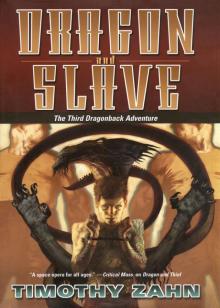 Dragonback 03 Dragon and Slave
Dragonback 03 Dragon and Slave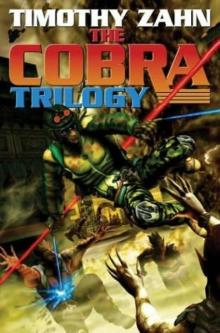 Cobra Bargain
Cobra Bargain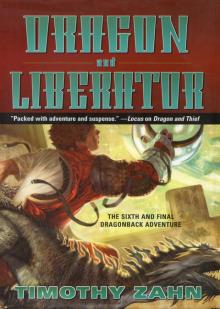 Dragonback 06 Dragon and Liberator
Dragonback 06 Dragon and Liberator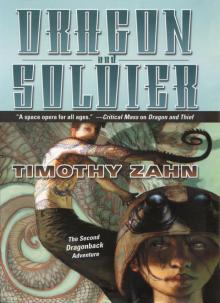 Dragonback 02 Dragon and Soldier
Dragonback 02 Dragon and Soldier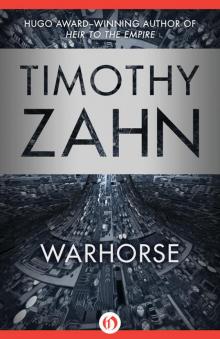 Warhorse
Warhorse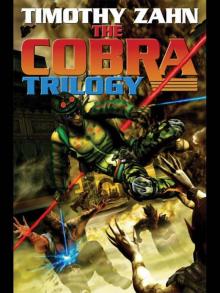 The Cobra Trilogy
The Cobra Trilogy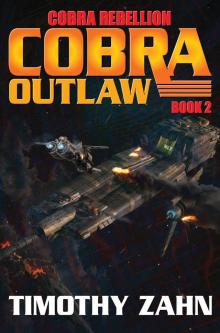 Cobra Outlaw - eARC
Cobra Outlaw - eARC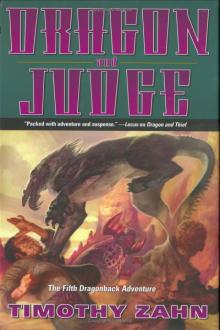 Dragon and Judge
Dragon and Judge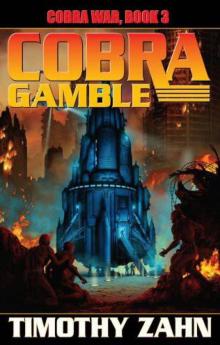 Cobra Gamble
Cobra Gamble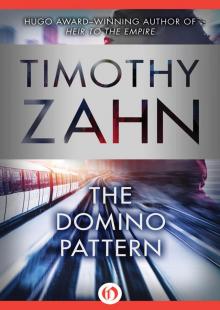 The Domino Pattern
The Domino Pattern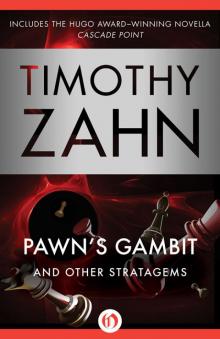 Pawn's Gambit: And Other Stratagems
Pawn's Gambit: And Other Stratagems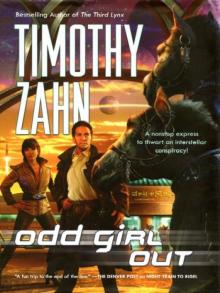 Odd Girl Out
Odd Girl Out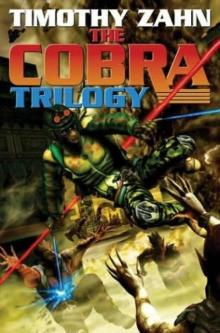 Cobra Strike
Cobra Strike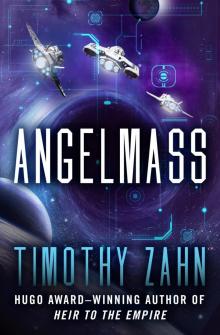 Angelmass
Angelmass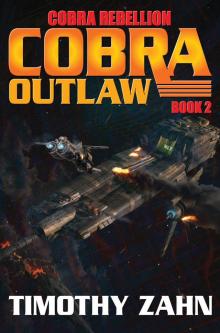 Cobra Outlaw
Cobra Outlaw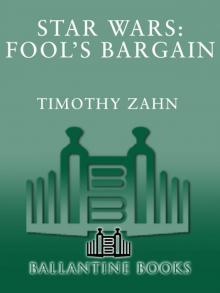 Heir to the Empire
Heir to the Empire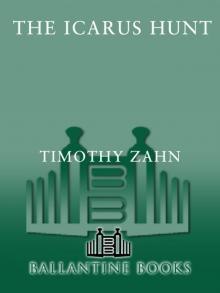 The Icarus Hunt
The Icarus Hunt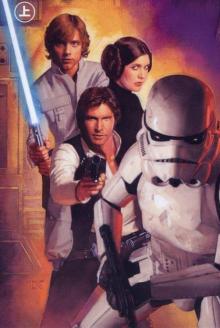 Star Wars - Thrawn Trilogy - The Last Command 03
Star Wars - Thrawn Trilogy - The Last Command 03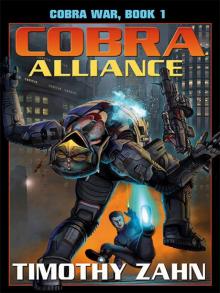 Cobra Alliance
Cobra Alliance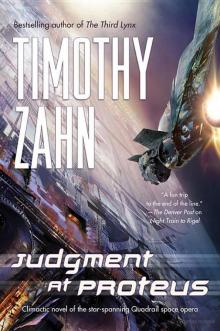 Judgment at Proteus
Judgment at Proteus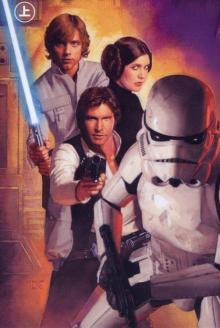 Star Wars - Thrawn Trilogy - Dark Force Rising 02
Star Wars - Thrawn Trilogy - Dark Force Rising 02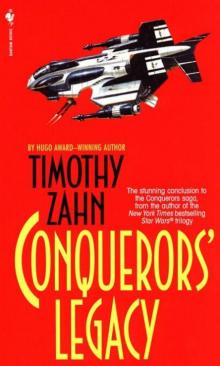 Conquerors' Legacy
Conquerors' Legacy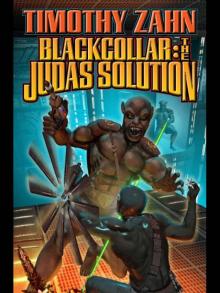 The Judas Solution
The Judas Solution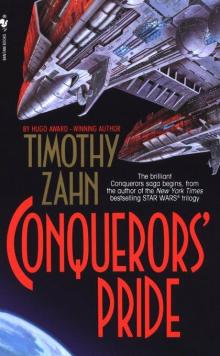 Conquerors' Pride
Conquerors' Pride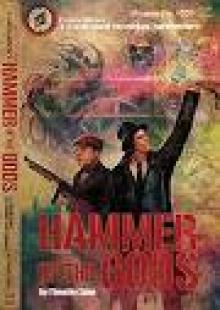 Hammer of the Gods
Hammer of the Gods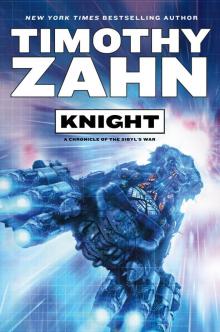 Knight
Knight Ghost Riders in the Sky
Ghost Riders in the Sky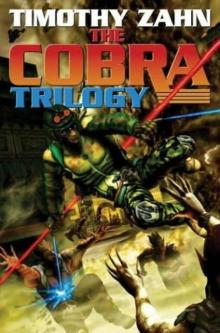 Cobra
Cobra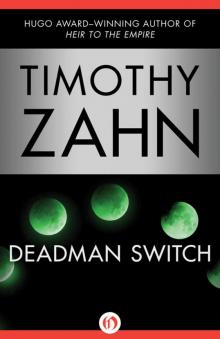 Deadman Switch
Deadman Switch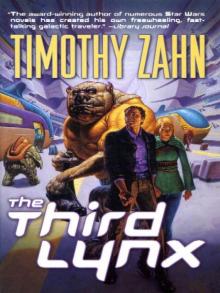 The Third Lynx
The Third Lynx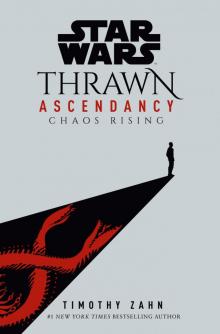 Chaos Rising
Chaos Rising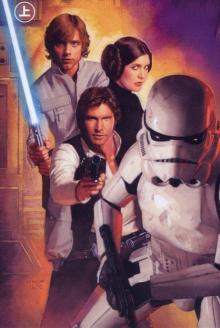 Star Wars - Thrawn Trilogy - Heir to the Empire 01
Star Wars - Thrawn Trilogy - Heir to the Empire 01 Manta's Gift
Manta's Gift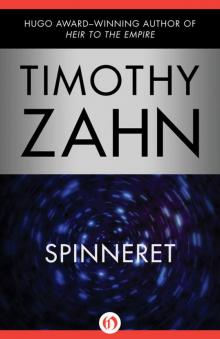 Spinneret
Spinneret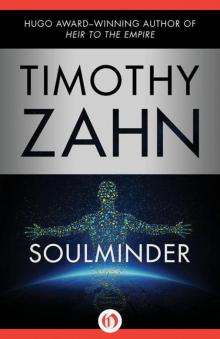 Soulminder
Soulminder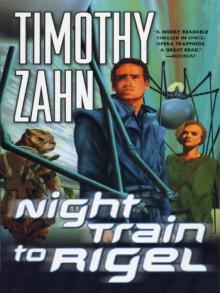 Night Train to Rigel
Night Train to Rigel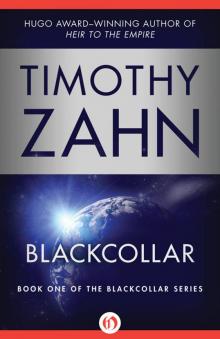 Blackcollar
Blackcollar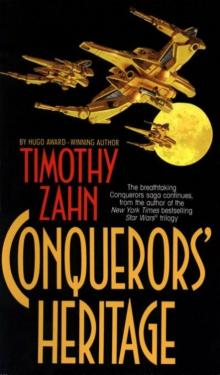 Conquerors' Heritage
Conquerors' Heritage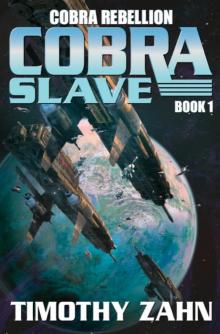 Cobra Slave
Cobra Slave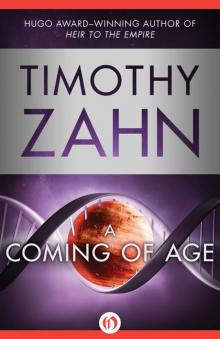 A Coming of Age
A Coming of Age Triplet
Triplet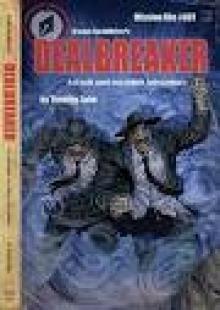 Dealbreaker
Dealbreaker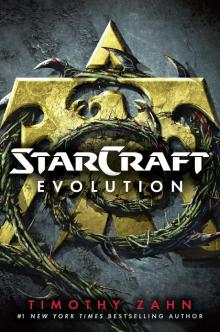 StarCraft
StarCraft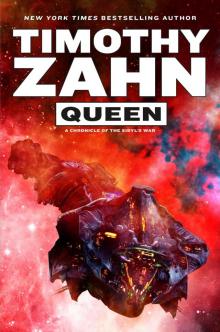 Queen
Queen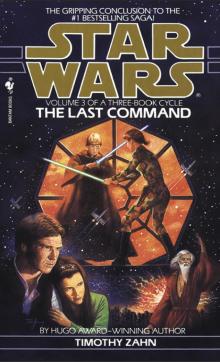 The Last Command
The Last Command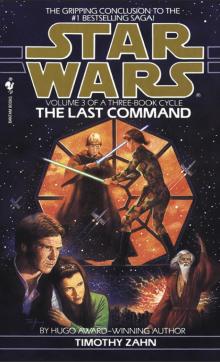 Star Wars: The Last Command
Star Wars: The Last Command Star Wars Clone Wars: Changing Seasons
Star Wars Clone Wars: Changing Seasons Scoundrels
Scoundrels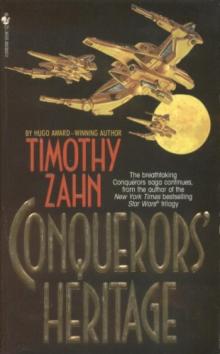 Conquerors 2 - Conquerors' Heritage
Conquerors 2 - Conquerors' Heritage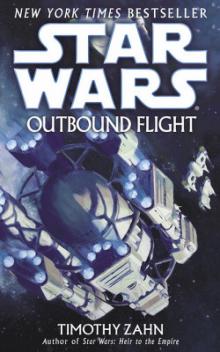 Outbound Flight (звёздные войны)
Outbound Flight (звёздные войны)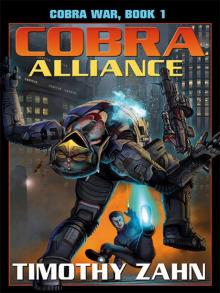 Cobra Alliance-Cobra War Book 1
Cobra Alliance-Cobra War Book 1 Hero of Cartao 2. Hero's Rise
Hero of Cartao 2. Hero's Rise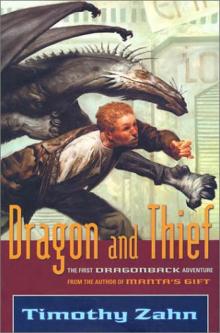 Dragon and Thief d-1
Dragon and Thief d-1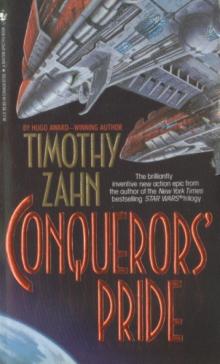 Conquerors 1 - Conquerors' Pride
Conquerors 1 - Conquerors' Pride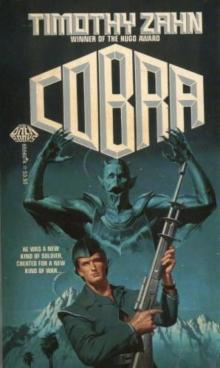 Cobra Alliance cw-1
Cobra Alliance cw-1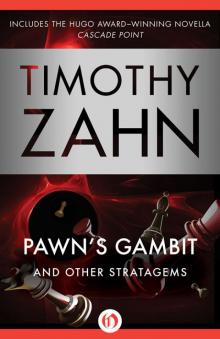 Pawn’s Gambit
Pawn’s Gambit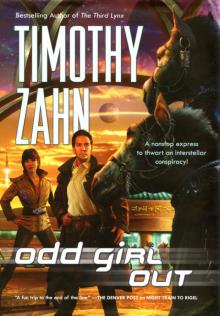 Odd Girl Out q-3
Odd Girl Out q-3 Dragon and Slave
Dragon and Slave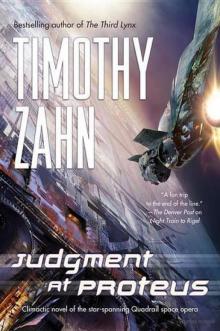 Judgment at Proteus q-5
Judgment at Proteus q-5 Night Train to Rigel (Quadrail Book 1)
Night Train to Rigel (Quadrail Book 1)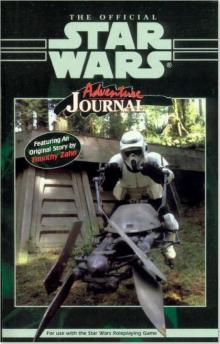 Star Wars: Adventure Journal 11: Command Decision
Star Wars: Adventure Journal 11: Command Decision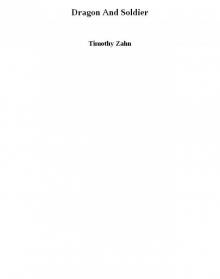 Dragon And Soldier
Dragon And Soldier Hero of Cartao 3. Hero's End
Hero of Cartao 3. Hero's End For Love of Amanda
For Love of Amanda Distant Friends and Other Stories
Distant Friends and Other Stories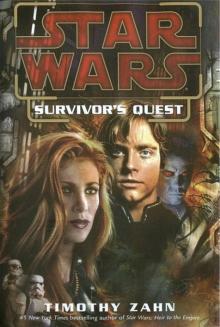 Star Wars: Survivor's Quest
Star Wars: Survivor's Quest Hero of Cartao 1. Hero's call
Hero of Cartao 1. Hero's call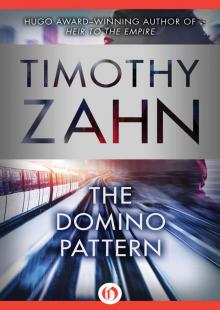 The Domino Pattern (Quadrail Book 4)
The Domino Pattern (Quadrail Book 4)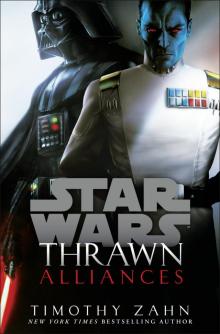 Thrawn_Alliances_Star Wars
Thrawn_Alliances_Star Wars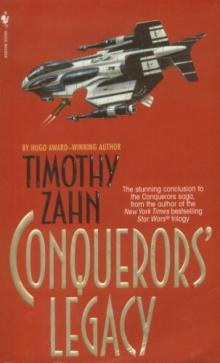 Conquerors 3 - Conquerors' Legacy
Conquerors 3 - Conquerors' Legacy The Blackcollar Series
The Blackcollar Series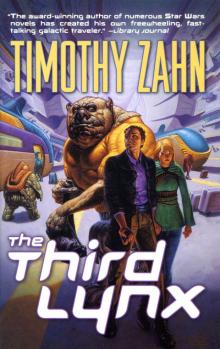 The Third Lynx q-2
The Third Lynx q-2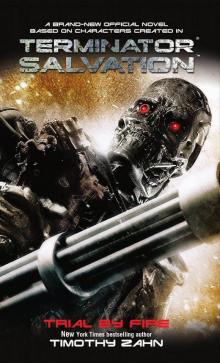 Terminator Salvation: Trial by Fire
Terminator Salvation: Trial by Fire Star Wars - Mist Encounter
Star Wars - Mist Encounter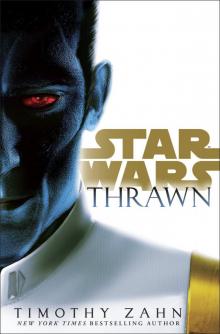 Thrawn
Thrawn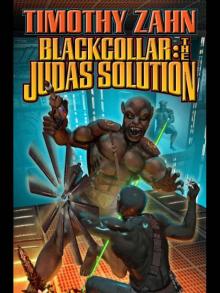 Blackcollar-The Judas Solution
Blackcollar-The Judas Solution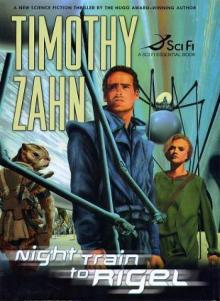 Night Train to Rigel q-1
Night Train to Rigel q-1 Cascade Point
Cascade Point Allegiance
Allegiance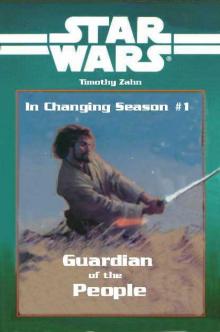 Star Wars - In Changing Season 1 - Guardian of the People
Star Wars - In Changing Season 1 - Guardian of the People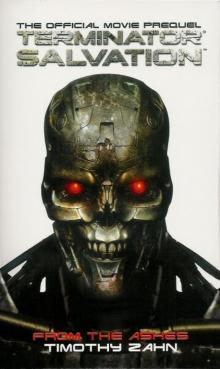 Terminator Salvation - From the Ashes ts-2
Terminator Salvation - From the Ashes ts-2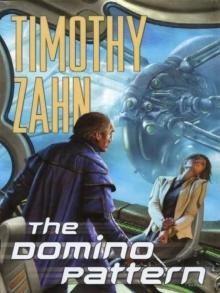 The Domino Pattern q-4
The Domino Pattern q-4 The Big Picture
The Big Picture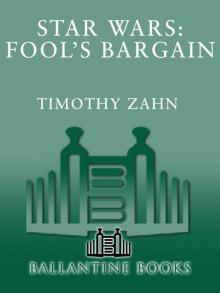 Star Wars: Fool's Bargain
Star Wars: Fool's Bargain Star Wars: Choices of One
Star Wars: Choices of One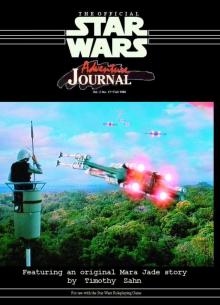 Star Wars - Jade Solitaire - Unpublished
Star Wars - Jade Solitaire - Unpublished Star Wars: Adventure Journal: Mist Encounter
Star Wars: Adventure Journal: Mist Encounter Outbound Flight
Outbound Flight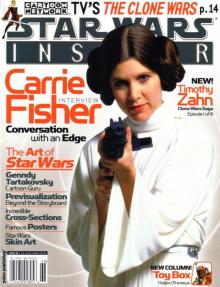 Star Wars - The Hero of Cartao - Part 1 - Hero's Call
Star Wars - The Hero of Cartao - Part 1 - Hero's Call Thrawn 1 - Specter of the Past
Thrawn 1 - Specter of the Past Survivor's Quest
Survivor's Quest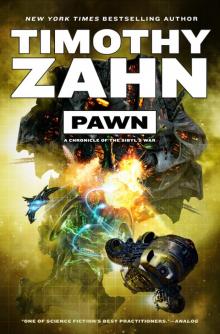 Pawn
Pawn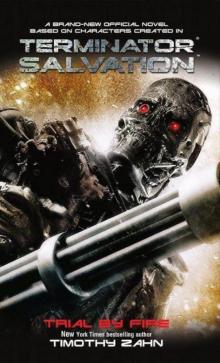 Trial By Fire ts-4
Trial By Fire ts-4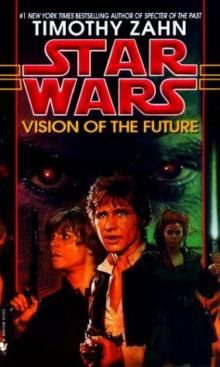 Vision of the future swhot-2
Vision of the future swhot-2 Star Song and Other Stories
Star Song and Other Stories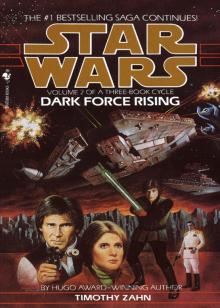 Dark Force Rising
Dark Force Rising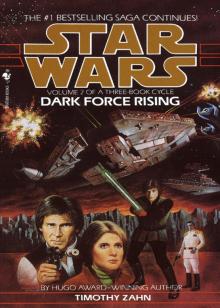 Star Wars: Dark Force Rising
Star Wars: Dark Force Rising Star Wars - Outbound Flight
Star Wars - Outbound Flight Blackcollar: The Judas Solution
Blackcollar: The Judas Solution The Green And The Gray
The Green And The Gray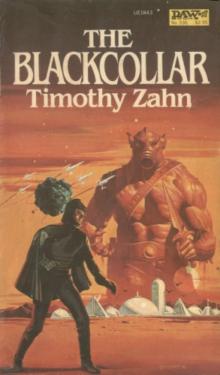 Blackcollar: The Blackcollar
Blackcollar: The Blackcollar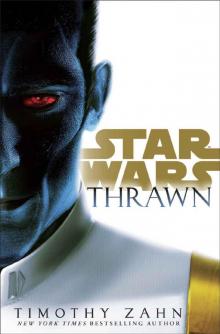 Star Wars_Thrawn
Star Wars_Thrawn Star Wars - Duel
Star Wars - Duel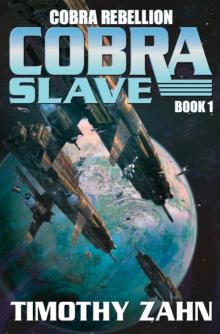 Cobra Slave-eARC
Cobra Slave-eARC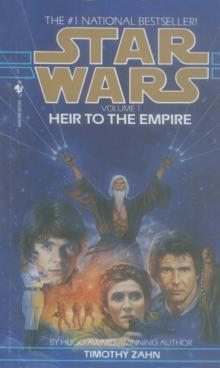 Star Wars: Heir to the Empire
Star Wars: Heir to the Empire Star Wars: Clone Wars Stories: Hero of Cartao
Star Wars: Clone Wars Stories: Hero of Cartao The Bounty Hunter Wars 1 The Mandalorian Armor
The Bounty Hunter Wars 1 The Mandalorian Armor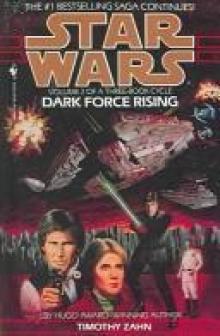 Dark Force Rising (Star Wars) swtt-2
Dark Force Rising (Star Wars) swtt-2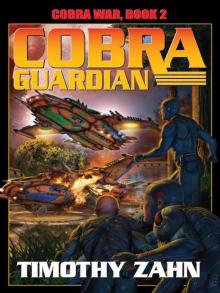 Cobra Guardian: Cobra War: Book Two
Cobra Guardian: Cobra War: Book Two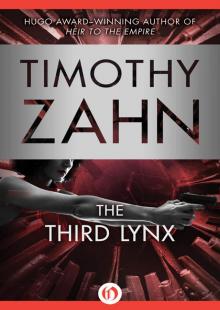 The Third Lynx (Quadrail Book 2)
The Third Lynx (Quadrail Book 2) Time Bomb And Zahndry Others
Time Bomb And Zahndry Others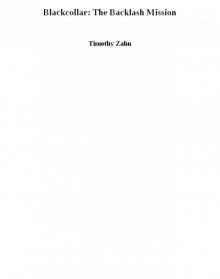 Blackcollar: The Backlash Mission
Blackcollar: The Backlash Mission Winner Lose All--A Lando Calrissian Tale: Star Wars
Winner Lose All--A Lando Calrissian Tale: Star Wars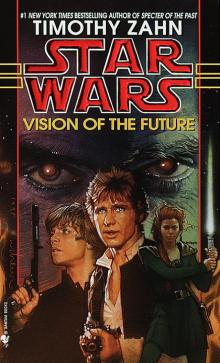 Star Wars: The Hand of Thrawn II: Vision of the Future
Star Wars: The Hand of Thrawn II: Vision of the Future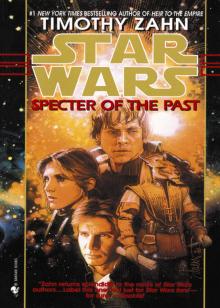 Specter of the Past
Specter of the Past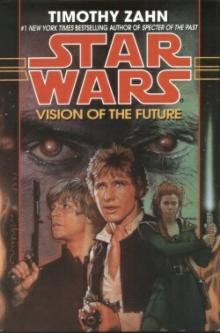 Star Wars - Hand of Thrawn 2 - Vision of the Future
Star Wars - Hand of Thrawn 2 - Vision of the Future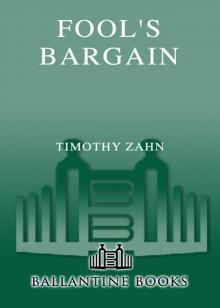 Fool's Bargain
Fool's Bargain From the Ashes
From the Ashes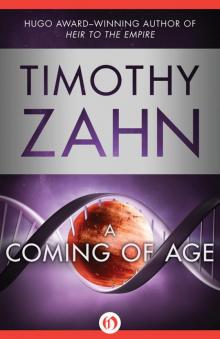 Coming of Age
Coming of Age